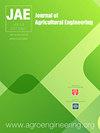Artificial intelligence to boost traceability systems for fraud prevention in the meat industry
IF 2.5
4区 农林科学
Q2 AGRICULTURAL ENGINEERING
引用次数: 0
Abstract
Traceability was introduced about twenty years ago to face the worldwide spread of food safety crises. Traceability data flow associated with each lot of food products during any production and/or delivery phases can also be used to guarantee product authenticity. For this purpose, it is necessary to protect the data from cyber intrusions and, at the same time, to guarantee the integrity of the bond between the physical product and the data. Price grading related to quality perceivable or credence attributes attracts criminals to attempt item substitution fraud. Improved track and trace technologies supported by artificial intelligence (AI) could highly enhance systems’ capability to detect authenticity violations by product substitution. This paper proposes an innovative method based on AI, to reinforce traceability systems in detecting possible counterfeiting by product substitution. It is an item-based mass balance method that analyses the congruity of the traceability data flows not by using explicit (even stochastic) rules but by exploiting the learning capabilities of a neural network. The system can then detect suspect information in a traceability data flow, alerting a possible profit-driven crime. The AI-based method was applied to a pork slaughtering and meat cutting chain case study.人工智能将促进肉类行业防止欺诈的可追溯系统
可追溯性是在大约20年前引入的,以应对全球范围内蔓延的食品安全危机。在任何生产和/或交付阶段,与每批食品相关的可追溯性数据流也可用于保证产品的真实性。为此,有必要保护数据免受网络入侵,同时保证物理产品与数据之间纽带的完整性。与可感知的质量或信用属性相关的价格分级吸引了犯罪分子进行物品替代欺诈。由人工智能(AI)支持的改进跟踪和跟踪技术可以高度增强系统检测产品替代真实性违规的能力。本文提出了一种基于人工智能的创新方法,以加强可追溯系统,以检测产品替代可能的假冒行为。它是一种基于物品的质量平衡方法,它不是通过使用明确的(甚至是随机的)规则,而是通过利用神经网络的学习能力来分析可追溯数据流的一致性。然后,该系统可以在可追溯数据流中发现可疑信息,提醒可能的利润驱动犯罪。将基于人工智能的方法应用于猪肉屠宰和肉类切割链的案例研究。
本文章由计算机程序翻译,如有差异,请以英文原文为准。
求助全文
约1分钟内获得全文
求助全文
来源期刊

Journal of Agricultural Engineering
AGRICULTURAL ENGINEERING-
CiteScore
2.30
自引率
5.60%
发文量
40
审稿时长
10 weeks
期刊介绍:
The Journal of Agricultural Engineering (JAE) is the official journal of the Italian Society of Agricultural Engineering supported by University of Bologna, Italy. The subject matter covers a complete and interdisciplinary range of research in engineering for agriculture and biosystems.
 求助内容:
求助内容: 应助结果提醒方式:
应助结果提醒方式:


